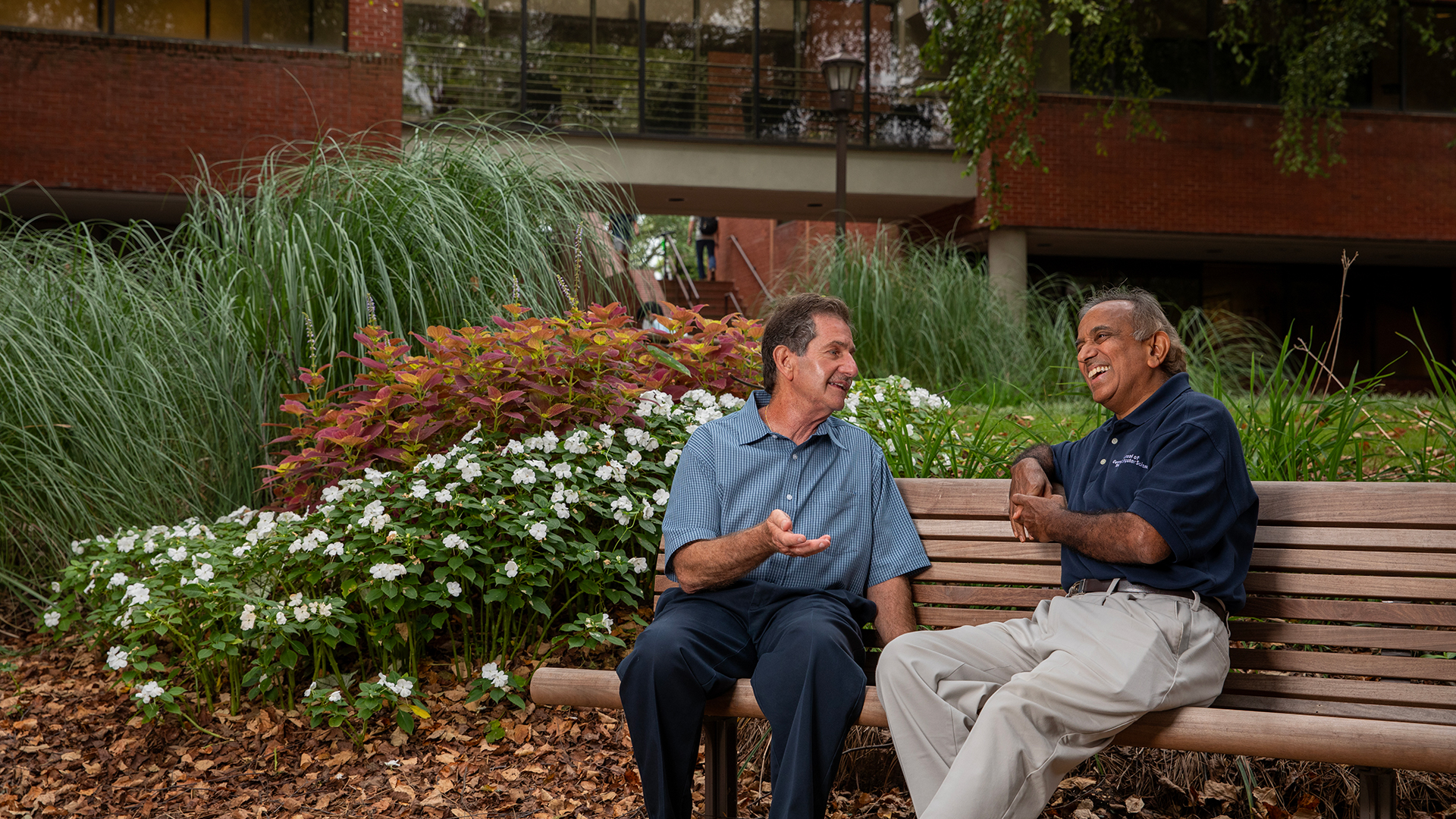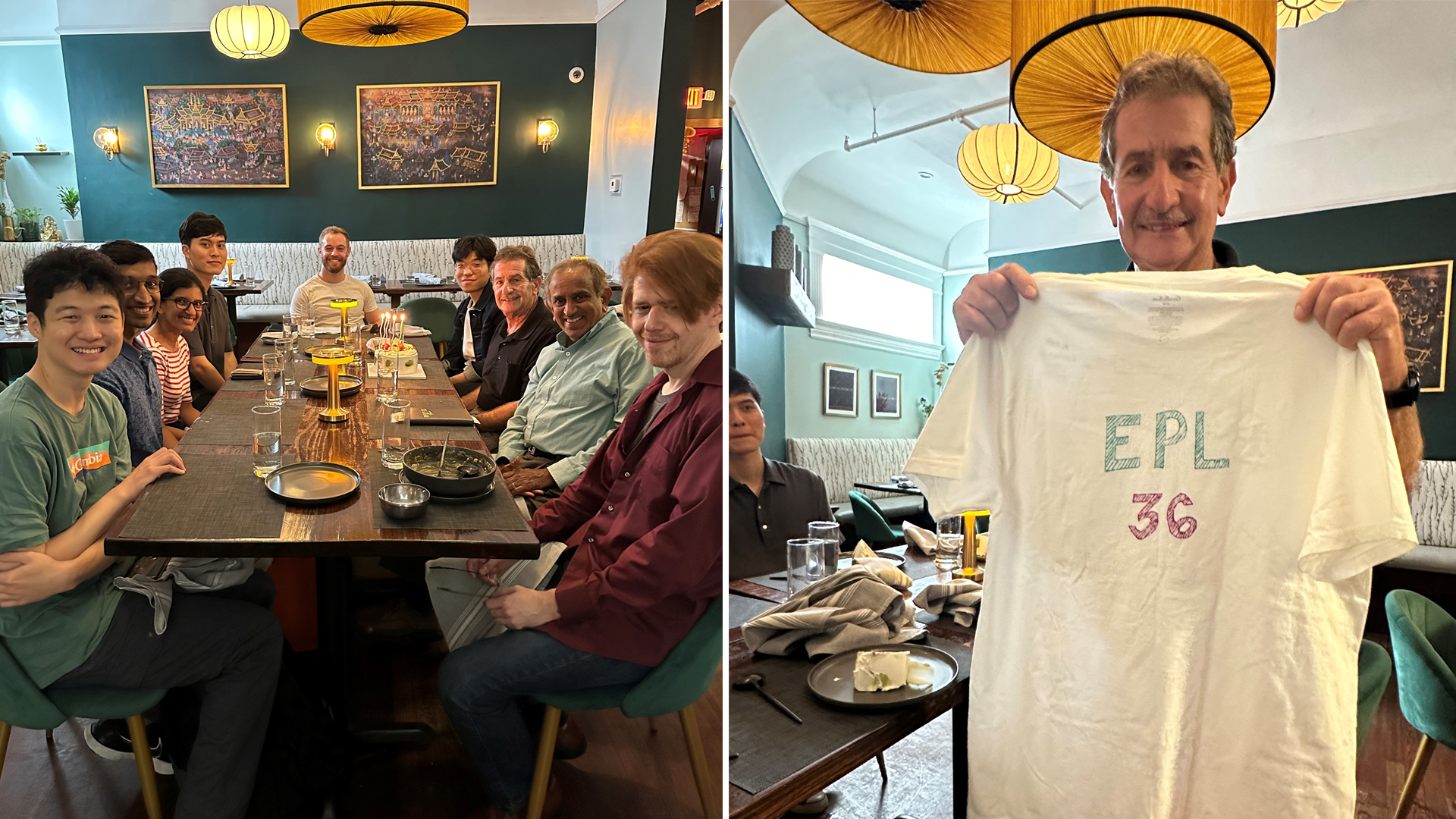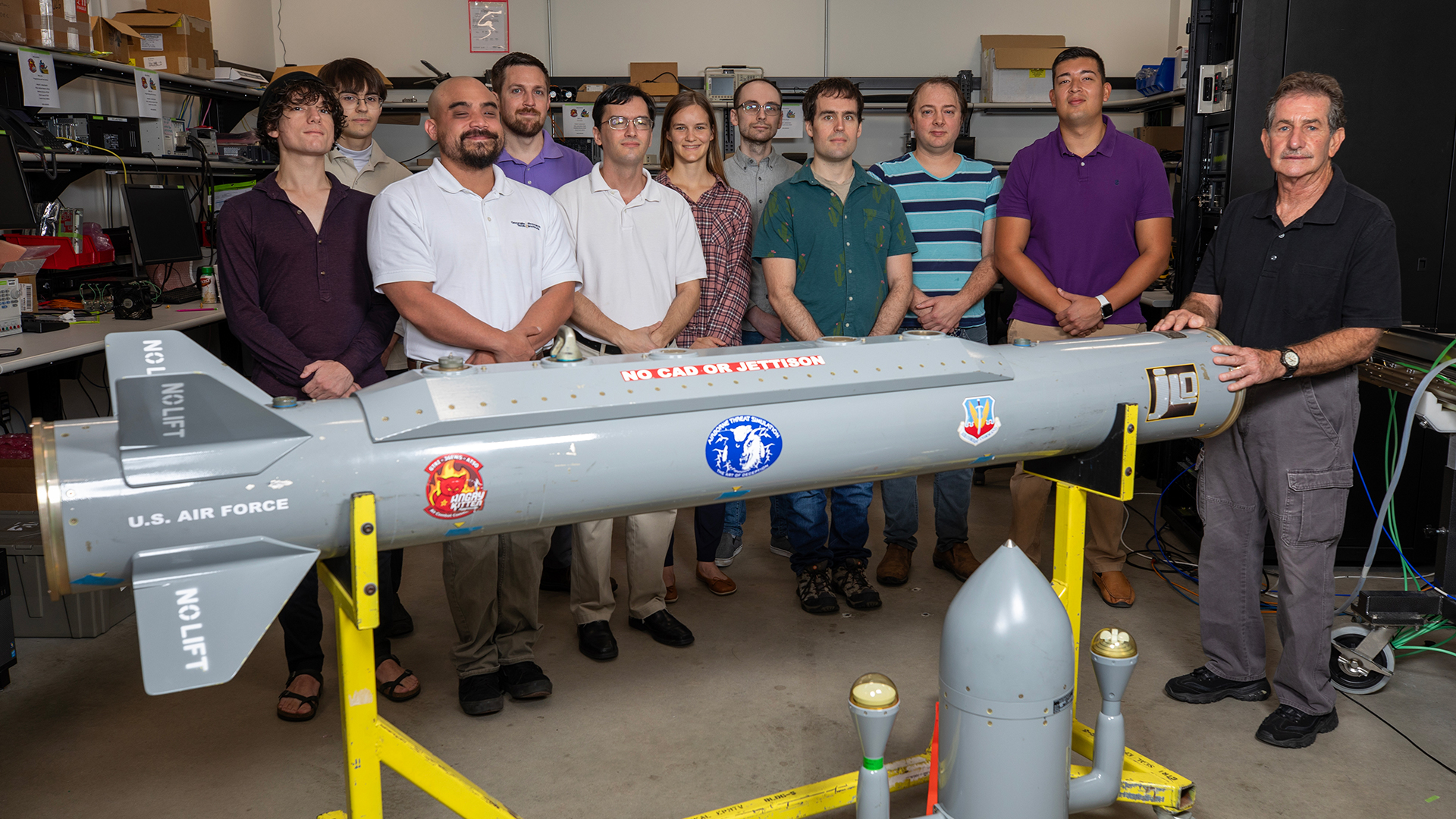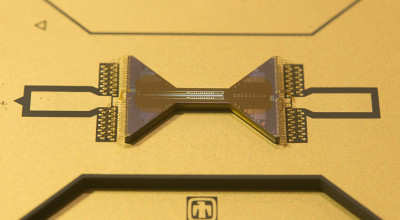As GTRI Principal Research Engineer Alan Nussbaum can tell you, the value of an education never gets old.
At 72 years old, Nussbaum recently earned his Ph.D. from the Georgia Institute of Technology (Georgia Tech) in computer science with a minor in electrical engineering. Although the degree took him 11 years to complete, Nussbaum said the concepts he learned and the lifelong relationships he formed made it all worth it.
Close to half of all doctoral recipients in the U.S. are 26 to 30 years old, while just 7% are over 45, according to recent data from the National Science Foundation. But it can be beneficial taking on the Ph.D. later in life.
“Getting a Ph.D. was hard,” Nussbaum said. “But I’m glad I did it at this stage in my life because I was able to apply more life experiences to my coursework and research, which was rewarding.”

Alan Nussbaum (left) with his Ph.D. advisor, Kishore Ramachandran (right), a professor in Georgia Tech’s College of Computing and School of Computer Science. They are pictured in the courtyard of the H. Milton Stewart School of Industrial and Systems Engineering. (Photo by Sean McNeil)
Nussbaum’s Ph.D. research focused on improving signal processing to provide better information to radar systems about sudden changes in a target’s velocity and acceleration. To do this, Nussbaum used a specific algorithm known as an expectation-maximization (EM) algorithm, which can calculate unknown variables, such as velocity and acceleration, with exceptional accuracy, and is also a scalable and cost-effective solution for radar signal processing.
“This is a new way of doing signal processing in real time to achieve higher fidelity tracking results,” Nussbaum said.
Nussbaum has had an extensive career in the defense space, including working for Northrop Grumman and Raytheon Technologies as a technical software manager before joining GTRI’s Sensors and Electromagnetic Applications (SEAL) Laboratory in 2010. Nussbaum has had the goal of earning a Ph.D. since 1981, when he earned a master’s degree in computer science, but was working for Northrop Grumman outside of Boston at the time, and was unable to take time out of the workday to travel into the city to attend school.

Left: Nussbaum celebrates his academic accomplishment with his Ph.D. advisor Kishore Ramachandran and research group Right: Nussbaum is the 36th student to achieve a Ph.D. as a member of advisor Kishore Ramachandran’s Embedded Pervasive Lab (EPL) at Georgia Tech (Both Photos Credit: Kishore Ramachandran)
Nussbaum chose to work for GTRI because it gave him the flexibility to be more creative with the research he performed for sponsors and its commitment to advanced education meant he wouldn’t have to put his career on hold to go back to school. "Working at GTRI made getting my Ph.D., which would have been very difficult anywhere else, manageable,” he said.
As a Ph.D. student, Nussbaum sought to balance the demands of work, school, and family by taking as many early-morning classes as possible, and then after work, he would spend nights attending any remaining classes or doing coursework.
“I had to learn to super-organize my time and keep both school and work moving in the right direction,” Nussbaum said.
Nussbaum most enjoyed learning about several advanced computer science concepts throughout the program, which were a nice complement to the radar research he was performing at GTRI, but said taking tests could be challenging at times.
“I understood my course materials but being older than 65 years old, and my work responsibilities, affected my memory,” he added.

Nussbaum and members of his software division pictured with GTRI's Angry Kitten® electronic attack system that they developed. Angry Kitten® was first developed in 2013 and utilizes advanced sensing and attack techniques to combat the most modern sensor systems. Several versions of the Angry Kitten® technology are utilized across the DoD (Photo Credit: Sean McNeil, GTRI).
Nussbaum also enjoyed building relationships with the other students in his program and his advisor, Kishore Ramachandran, a professor in the College of Computing and School of Computer Science.
Ramachandran, who has expertise in distributed and real-time computing systems, described Nussbaum as an accomplished yet humble individual who brought an impressive amount of industry knowledge and experience to the program.
“It was such a joy working with Alan,” Ramachandran said. “Because of his seniority and background, he became an integral part of my research group. At the same time, he was not the type to brag about all of his accomplishments, but was eager to learn from the other students who were considerably younger than him.”
GTRI Principal Research Engineers Dale Blair and Byron Keel also played a key role in supporting Nussbaum during his Ph.D. journey. Blair served as Nussbaum's co-advisor and supported the target tracking aspects of his research while Keel supported the signal processing portions of the research. Their knowledge and algorithm verification, combined with Nussbaum's software engineering experience, ensured the achievement of all the research’s functional and real-time performance goals.
Right now, Nussbaum, who is based in Lexington, Massachusetts, and works out of GTRI’s New England Field Office, said he is enjoying spending time with family, including his four grandchildren. Looking ahead, he plans to continue growing his division at GTRI and utilizing his research on future radar applications.
Nussbaum said he is grateful for the professional and personal support he received throughout his Ph.D. journey. To anyone who might also be considering taking a professional or personal leap of faith, Nussbaum said the path might not always be linear or easy, but it will almost always be worth it.
“If you are willing to maintain the commitment for many years and understand the required process, the feeling is very good when you are completed,” he said.
Writer: Anna Akins (anna.akins@gtri.gatech.edu)
GTRI Communications
Georgia Tech Research Institute
Atlanta, Georgia USA
The Georgia Tech Research Institute (GTRI) is the nonprofit, applied research division of the Georgia Institute of Technology (Georgia Tech). Founded in 1934 as the Engineering Experiment Station, GTRI has grown to more than 2,900 employees, supporting eight laboratories in over 20 locations around the country and performing more than $940 million of problem-solving research annually for government and industry. GTRI's renowned researchers combine science, engineering, economics, policy, and technical expertise to solve complex problems for the U.S. federal government, state, and industry.




